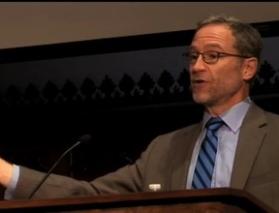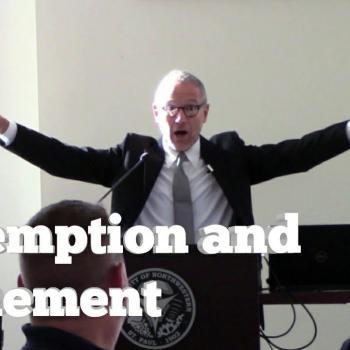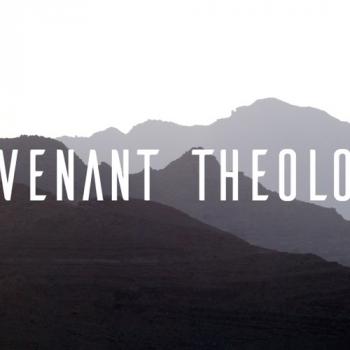In traditional Reformed federal theology, a distinction is made between a covenant of works and a covenant of grace. It is argued that before the fall, Adam was placed in a covenant of works with God. In order to gain life, Adam had to be obedient to God’s will. In the prelapsarian state, therefore, Adam could merit his standing before God. After the fall, God instituted the covenant of grace in Genesis 3:15. This covenant of grace extends throughout the Abraham, Davidic, and New Covenant. The Mosaic covenant is sometimes described as a covenant of grace, but by others is explained as a republication of the covenant of works. In this manner of theologizing, there is an immense difference between God’s manner of relating to man before and after the fall. In this perspective, grace can only properly be spoken of as a post-fall reality.
Before the fall, man still existed in the same two basic kinds of relationships that he does today: with God, and with the world. In the Calvinistic approach to the covenant of works, both of these relationships are based on active righteousness. Adam’s standing before God and in the world were both based upon his obedience. In Luther’s view, however, grace is connected to creation itself. In his exposition of the first article of the Creed, Luther writes:
I believe that God has made me and all creatures; that He has given me my body and soul, eyes, ears, and all my limbs, my reason, and all my senses, and still preserves them; in addition thereto, clothing and shoes, meat and drink, house and homestead, wife and children, fields, cattle, and all my goods; that He provides me richly and daily with all that I need to support this body and life, protects me from all danger, and guards me and preserves me from all evil; and all this out of pure, fatherly, divine goodness and mercy, without any merit or worthiness in me; for all which I owe it to Him to thank, praise, serve, and obey Him. This is most certainly true. (SC II.1)
The very act of creation, for Luther, is a work of grace. God’s way of working with man has always been one of grace, from creation through redemption. This demonstrates that the two kinds of righteousness distinction is not only a post-fall reality, but relates to the very essence of God’s character and man’s created intent. In the Genesis narrative, God gives Adam everything he needs for his bodily life as a free gift. God gives Adam his spirit by breathing into him. He gives him land to take care of, food to eat, and a wife to love. Throughout the narrative, God is pictured as a giver of gifts to his creation, not as a law-giver placing strict demands before Adam in order that he might merit confirmation in righteousness. The commands God gives to Adam, then, are not demands of righteousness coram Deo but fatherly instructions about how he is to live in the created realm. He tells Adam to till the ground, to have children, and to name the animals. All of these works were done for the good of the created realm. Even at the moment of creation, man’s relationships coram mundo were dependent upon his work for the good of the earth, and his wife.
Never in the text of Genesis is Adam told that he will gain life by his obedience. He is only told that he could lose life by his disobedience. Adam was already in God’s favor by creation. He did not need to earn that favor. But God did grant Adam a choice, so that he could walk away from God’s grace, bringing death upon himself and his descendants. There is an implicit assumption in Reformed arguments that because Adam could do something to lose life, he could conversely perform some work to gain life. Such an assumption is unwarranted, and is not defensible from the text of Genesis. Instead, man’s passive relationship to God and active relationship to the world are essential to who he is created to be, not simply a post-fall situation.












